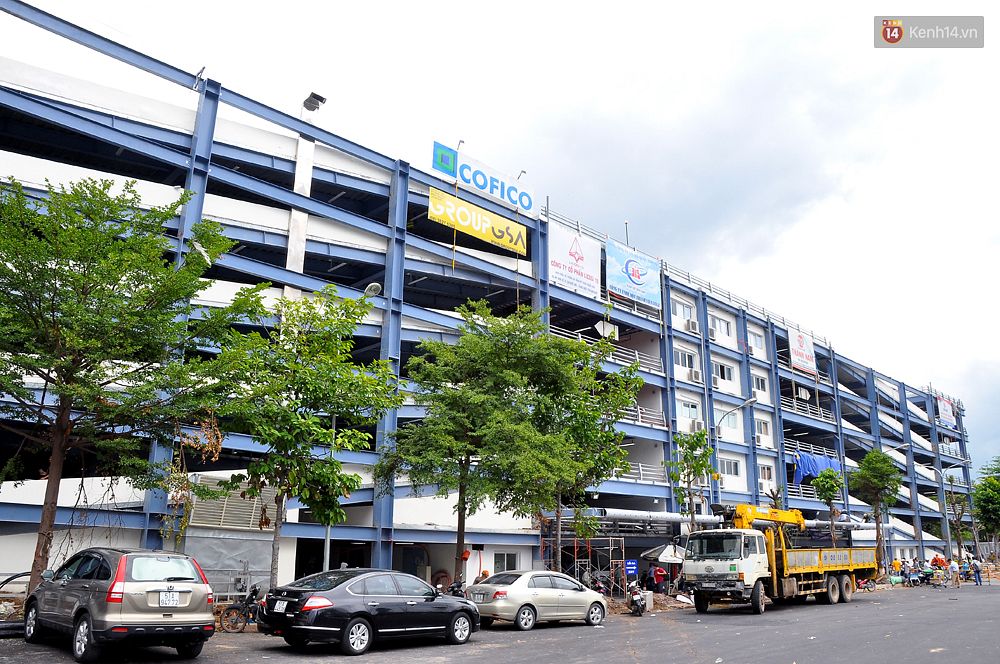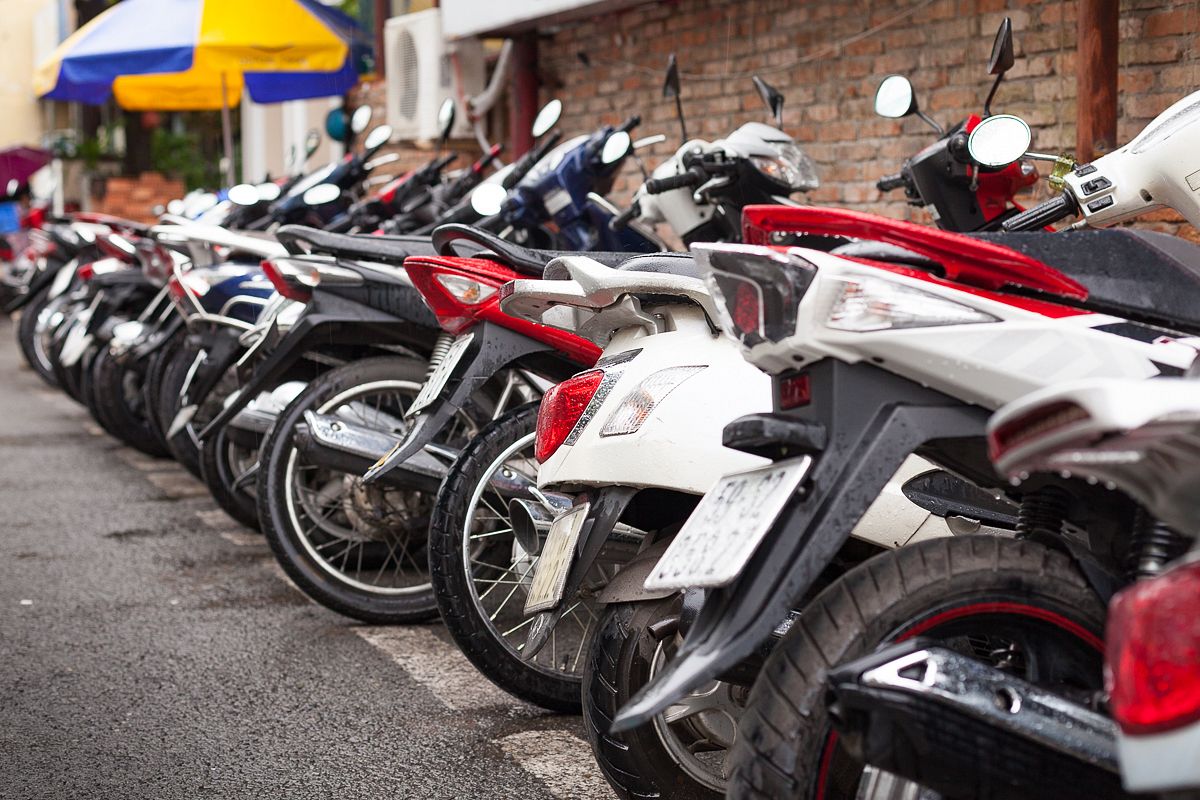Saigon’s traffic issues are an extremely tough nut to crack for local authorities. In recent years, the government has come up with a slew of solutions in an attempt to ease traffic woes, with varying degrees of success, including building massive overpasses, banning vehicles and expediting construction of the city’s much-anticipated metro system. However, while municipal authorities are focused on fixing problems on the street, the city’s parking issues remain largely neglected.
Currently, some 8,000 new motorbikes and 750 cars hit Vietnam’s streets every day, putting a strain on the country’s already bottlenecked road system and limited parking space. The situation is especially dire for large metropolises such as Saigon, where new cafes, shopping malls and restaurants open on a daily basis.
The southern hub’s public venues, ranging from hospitals to Tan Son Nhat International Airport, are also buckling under the pressure. The aerodrome recently opened a five-story parking garage to accommodate this pressing demand for parking spaces. The new facility, however, has not been without its hiccups, as visitors have reported that it’s impossible to find their vehicle after they return.

Tan Son Nhat's brand-new five-story parking garage. Photo via Kenh14.
While venues are struggling to keep up with the city’s ever-growing population of personal vehicles, some Saigoneers are facing a whole different set of problems related to parking: the parking services themselves. Due to a lack of monitoring by relevant authorities, vehicle owners are at the mercy of parking attendants.
According to Tap Chi Giao Thong, a decree put forth in 2012 states that Saigon’s public venues are only allowed to charge VND2,000 to VND5,000 per parking session per motorbike, depending on the type of vehicle. Moreover, parking lots are required to clearly indicate how much they are charging. However, one only has to pay a visit to one of the city’s hotspots, such as Bui Vien or Nguyen Hue walking street, to realize that this price restriction is not always followed, as fees can range from VND15,000 – VND20,000 on holidays and weekends.
Apart from being charged an exorbitant amount for subpar service, parking in dubious street lots also poses the risk of Saigoneers being left to fend for themselves when bikes go missing. So what can one do should such a mishap occur?
Pham Hoai Nam, a member of the Ho Chi Minh City Bar Association, shared the legal aspects of this situation with Tuoi Tre. According to the lawyer, handing over a vehicle to a parking attendant is equivalent to establishing a legally binding contract. This means that the keeper of the bike is obliged to compensate the owner should the vehicle go missing under their watch.
Deputy Chief Justice Phu Quoc Tuan, of the District 3 People’s Court, elaborated that should the two parties fail to reach an agreement, the bike owner can file a lawsuit to the court to demand compensation.
“[The plaintiff] should prepare a number of relevant papers before bringing the case to court, including a report about the lost property, vehicle ownership certificates (blue cards), ID cards or passports, and residence registration,” he told Tuoi Tre. “The parking card could also serve as a contract with legal value in court.”
In cases where a parking ticket is missing or was not provided, the victim can also demand compensation if they can either find an eyewitness to testify before the court, or provide evidence that it is common practice that the venue doesn’t give out parking tickets.
According to Tran Quoc Bao, a lawyer from Phap Dang law firm, even without a ticket, the initial oral agreement is also recognized by law as a service contract. The complete set of aforementioned documents should be submitted to the People’s Court closest to the parking facility in question, Bao shared with Tiep Thi & Gia Dinh.















